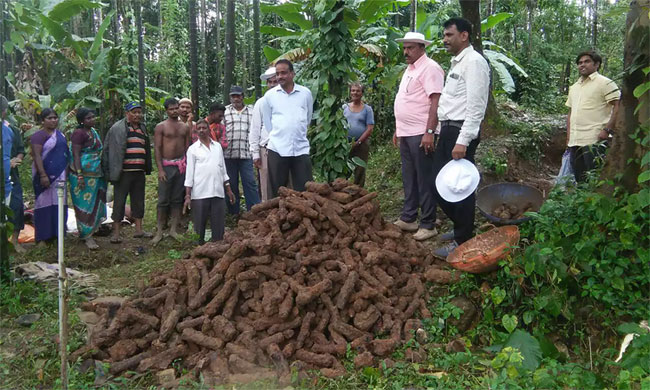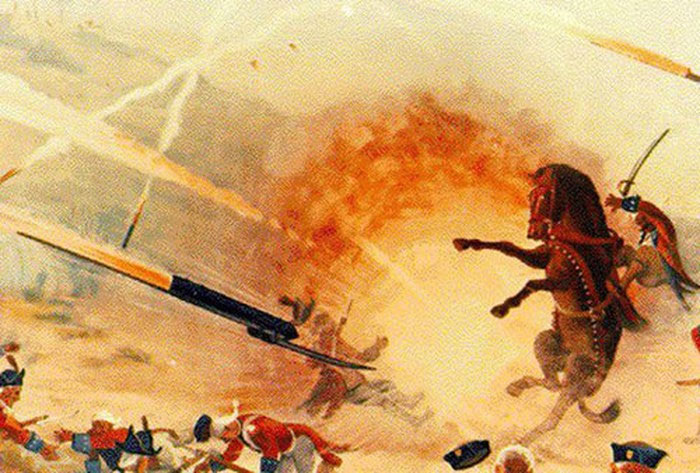1000 Indian king's rockets buried under wild wells
The number of Mysorean missiles found under an abandoned well in southern India belonged to an 18th century warrior king.
More than 1,000 missiles belong to Tipu Sultan, an 18th century Indian king , found in a wild well in Shimoga town, Karnataka state, south of the country, according to the Guardian.

Archaeologists stand by the 18th-century rocket store excavated from a wild well in Karnataka state.(Photo: AFP).
Archaeologists said that when they excavated the well, they found that the mud smells like gunpowder should have found this arsenal. 15 members of the archaeological group and workers took 3 days to complete the excavation.
This is the famous type, developed by King Tipu Sultan very early and once terrified to the British colonial army. They were made of iron pipes 23-26 cm long, filled with gunpowder and attached to a bamboo tube about a meter long. They can fly almost 1,000 meters and create loud explosions that threaten enemies or cause fires in enemy arsenal.
Iron pipes of the number of Mysorean missiles were found to have leaked after a long time of being buried. This may be an arsenal of weapons used by King Tipu Sultan during the war with the British East India company.

Mysorean missiles used to scatter the British colonial army.(Photo: History).
According to archaeological records, the fortress area in Shimoga is part of the kingdom of Tipu Sultan. He was both a powerful king, a Muslim warrior and scholar, who died in the fourth war with the British in 1799.
The missiles found will be displayed at the museum in Shimoga.
- Ancient wells over 600 years have never run out of water
- 2 boys were buried as kings three thousand years ago
- Underground treasure in Valley of Kings
- The truth about inner wells: No one dares to drink water for fear!
- Discover ancient wells that have never run out of water
- Terrible land in India, at least 150 people were buried
- China excavated hundreds of ancient wells over 2000 years old
- He discovered the holy well
- Will supersonic rockets start World War 3?
- Mysterious beauty in the ancient tomb of the king is full of gold
- Intact wild boar buried 10,000 years
- Indian owl is in danger because of
 Discovered an ancient centipede fossil 99 million years old
Discovered an ancient centipede fossil 99 million years old Discovered bat-like dinosaurs in China
Discovered bat-like dinosaurs in China Discovered a 200-year-old bronze cannon of the coast
Discovered a 200-year-old bronze cannon of the coast Discover 305 million-year-old spider fossils
Discover 305 million-year-old spider fossils